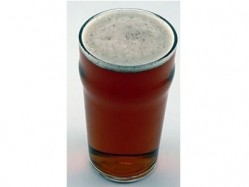Below-cost alcohol ban “an important first step”

The ban will come into effect on 6 April 2012. Home Office Minister James Brokenshire described the move as "an important first step" which will prevent around 7,000 crimes a year.
The announcement comes less than a month after the Association of Licenced Multiple Retailers (ALMR) urged the Government to introduce the ban after Asda was selling boxes of Budweiser for the equivalent of 87p a pint.
Kate Nicholls, ALMR strategic affairs director, said at the time: “This offer highlights the need for a ban not only to be implemented, but also the current duty plus VAT definition extended – as a matter of urgency.
“In addition, we would urge the government to go further by applying extra controls on off-trade sales. The 2003 Licensing Act effectively swept away controls on siting, promotions and bulk purchases in shops.”
Far too low
The ban means that shops and bars will not be able to sell alcoholic drinks for less than the tax paid on them. This works out as 38p for a can of lager and £10.71 for a litre of Vodka.
Despite the positive news of a ban being enforced, health campaigners including the British Medical Association claim the changes will make little difference and that the floor is still far too low.
Meanwhile, the Scottish Government is going ahead with plans to introduce a minimum price per unit of alcohol, having initially attempted to set the price at 45p per unit.

















